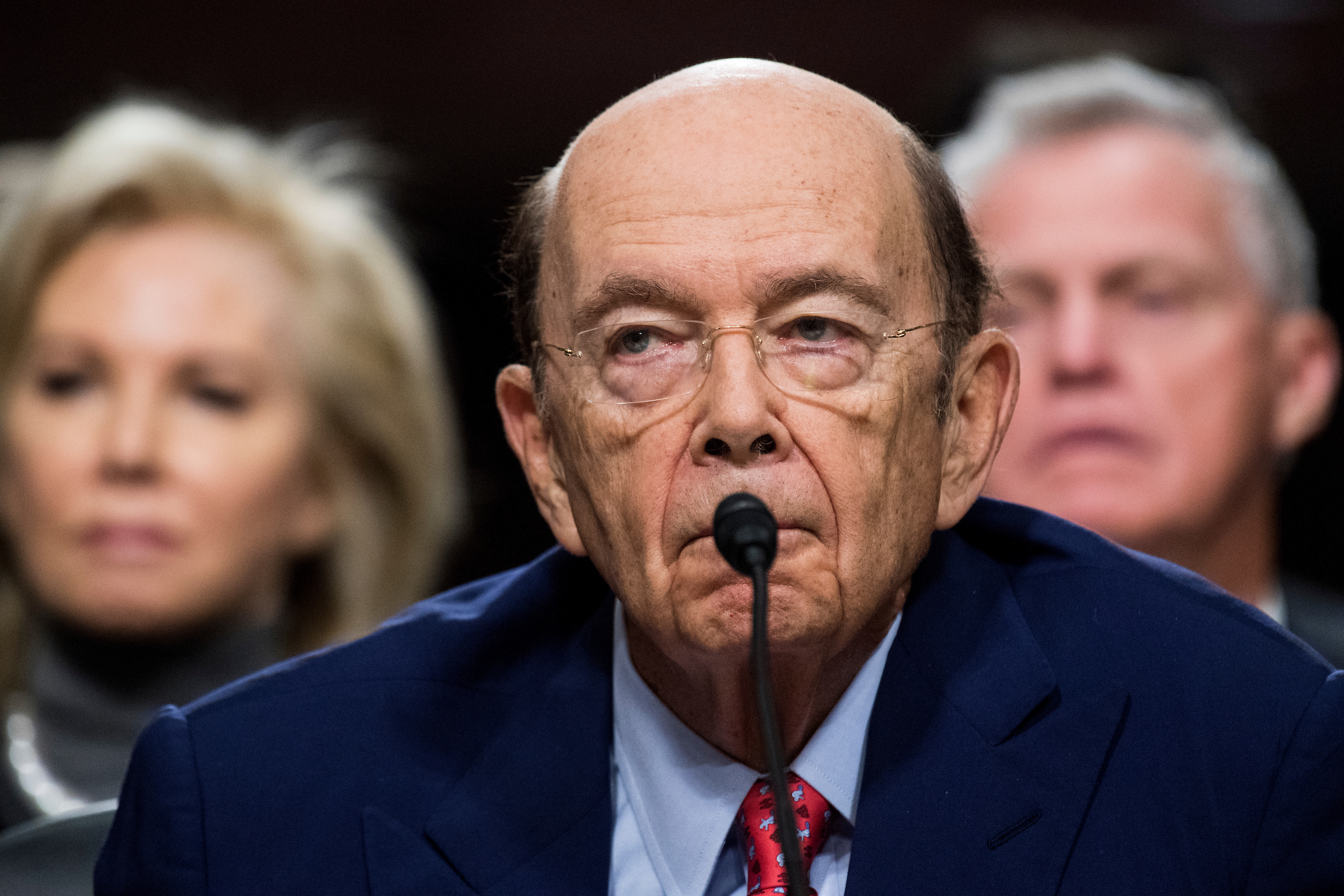Beer, Auto and Plane Industries Could Be Hurt by Tariffs
Trump, Ross keep drumbeat for imposing tariffs while industries fret

While the Trump administration on Friday continued to downplay the potential economic effects of imposing double-digit tariffs on steel and aluminum imports, experts continued to worry about widespread effects throughout the economy.
Commerce Secretary Wilbur Ross went on CNBC Friday to say market plunges in the wake of Thursday’s tariff announcement were overblown and the economic effect would amount to little for consumers.
But the auto industry, along with the construction sector, would bear the brunt of higher costs under the tariffs, David Dollar, a senior fellow at the Brookings Institution’s John L. Thornton China Center, said Friday.
He said President Donald Trump could mitigate the damage by exempting Canada and perhaps Mexico and other countries the United States has trade agreements with. “We export more steel to Canada than we import from Canada. I don’t see a national security issue in importing from Canada and Mexico,” he said.
National security was the Commerce Department’s official justification for the tariffs, and Canada and Mexico are partners in the North American Free Trade Agreement, which is being renegotiated.
Even if there is retaliation by other countries, Dollar said the effect on the broader U.S. economy would be “fairly minor,” although the financial hurt could be concentrated in industries such as construction. The broader economy will suffer, however, if the Trump administration follows the steel and aluminum actions with other restrictive trade enforcement policies on a growing list of imports, he said.
Despite the pushback and the stock market’s slide, Trump Friday afternoon doubled down on his intent to take even tougher tariff measures with other countries. He tweeted, “When a country Taxes our products coming in at, say, 50%, and we Tax the same product coming into our country at ZERO, not fair or smart. We will soon be starting RECIPROCAL TAXES so that we will charge the same thing as they charge us. $800 Billion Trade Deficit-have no choice!″ He is referring to the 2017 U.S. trade deficit in goods only. The 2017 trade deficit for goods and services, however, was $566 billion.
The president’s words are likely to stoke further anxiety among industries already worried by Thursday’s proposed tariffs.
Aerospace Industries Association CEO Eric K. Fanning said on CNBC that his members could face higher production costs because they use both steel and aluminum in their planes and other products. Fanning, who was secretary of the Army the last year of the Obama administration, said domestic steel output meets 70 percent of domestic demand for the metal and that imports fill the remaining 30 percent of demand. The military uses about 3 percent of all steel and 3 percent of all aluminum produced domestically, so national security is not affected by imports, he argued.
Fanning said the 340 aerospace and defense companies in his organization thrive on exports and worry about retaliation.
Beer Institute CEO James McGreevy said the tariffs constitute a $347.7 million tax on his members, since aluminum is a major component of beer cans.
“Tariffs are taxes, and taxes are job killers and prosperity killers,” McGreevy said during the broadcast.
His sentiments echoed remarks by the chairman of Senate Finance Committee, which oversees trade deals and some tariffs.
“Tariffs on steel and aluminum are a tax hike the American people don’t need and can’t afford,” Chairman Orrin G. Hatch, R-Utah, said in a statement.
“I encourage the president to carefully consider all of the implications of raising the cost of steel and aluminum on American manufacturers and consumers,” Hatch said, apparently with an eye toward prodding Trump to soften the potential blow in the documents he will sign the week of March 5.
Some GOP senators who are upset by Trump’s actions said Congress could intervene, but they had no specifics.
Earlier Friday, Trump took to Twitter to defend his coming trade actions, writing that “trade wars are good” and that the U.S. steel industry must be protected because “IF YOU DON’T HAVE STEEL, YOU DON’T HAVE A COUNTRY!”
Retaliation
Trump’s tariff announcement Thursday caught many trading partners off guard with the broad sweep of his decision.
European Commission President Jean-Claude Juncker said Friday that the European Union would have to respond with its own tariffs on U.S. products if Trump imposes tariffs on European steel.
Canada declared the tariffs “absolutely unacceptable” in a statement Thursday.
But Trump has bipartisan support for his action from congressional members in areas with steel or aluminum production.
Rep. Mike Bost, R-Ill., who co-chairs the Congressional Steel Caucus, called the steel tariff “a bold step forward to stop unfair trade practices so American steelworkers can continue to make American steel that supports our military, critical infrastructure, and the livelihoods of American families.”
Trump used two executive orders in April 2017 to direct the Commerce Department to investigate steel and aluminum imports under Section 232 of the Trade Expansion Act of 1962. The department concluded that foreign-made steel and aluminum are economic and national security threats and that imports have forced domestic plants to close and made the United States increasingly dependent on steel and aluminum imports for commercial and military uses.





